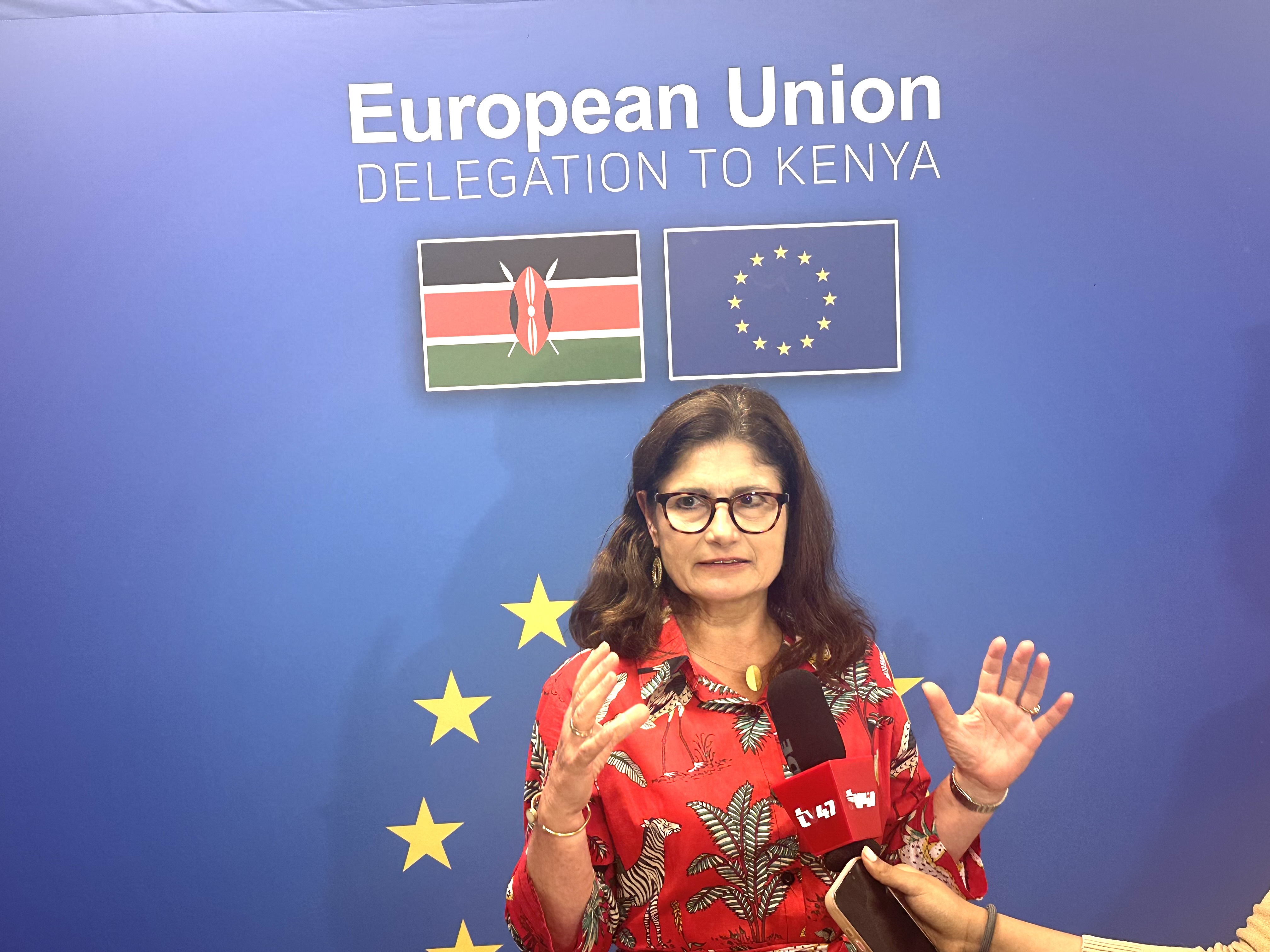

The European Union Ambassador to Kenya has proposed dedicated trade corridors, harmonised procedures and fast-tracked border systems for landlocked countries.
Speaking at the EU Delegation mission headquarters in Nairobi on Wednesday, Amb Henriette Geiger called for structured dialogue in addressing their concerns.
“The landlocked countries have a key interest that their
trade flow and the goods they are importing and exporting are quickly and
relatively cost-effectively dispatched,” he said.
“So, I fully understand the concerns of landlocked countries
because they depend on the efficiency of those who have the ports.”
Amb Geiger was speaking ahead of the EU-IndoPacific
ministerial forum in Brussels.
She said states should explore modalities to guarantee
uninterrupted trade routes for countries without direct access to the sea,
saying economic interdependence among East African states makes secure passage
essential.
Geiger, however, said solutions to the concerns raised can
be found, for example, by building dedicated trade corridors, fast tracking,
regulating and harmonising procedures.
“The EU, for example, is financing one-stop border posts,
including one between Kenya and Uganda. What was a one-week backlog of trucks
is now reduced to hours,” she said.
“Where there is a will, there is a way. And of course you
can understand the concern of landlocked countries, but they have to come to
the table and discuss what needs to be done about it.”
Her remarks come amid growing concerns in Nairobi and
Kampala over recent statements by Uganda President Yoweri Museveni that Uganda
“must secure reliable access to the ocean”, even hinting at the possibility of
future wars.
Geiger weas briefing the media on the EU-IndoPacific high-level ministerial forum, which was held on November 20 -21.
The meeting focussed joint
interests in maritime security, securing trade routes and fostering trade and
economic development through building value chains across continents.
“African countries that border the Indian Ocean have been
invited so they can have a seat at the table where those government decisions
are taken,” she said.
“For shared resource like waterways or oceans, it is very
difficult to make decisions based on one country.”
The proposal comes at a time when Museveni’s threat has
created concerns in Nairobi, with the issue finding its way into the National
Assembly.
Suba South MP Caroli Omondi on Wednesday put a question to
Foreign Affairs CS Musalia Mudavadi on Museveni’s threat of an invasion.
Mudavadi dismissed any suggestions of military tension,
emphasising that Kenya’s foreign policy is guided by diplomacy and
international obligations.
He met Museveni in Uganda on Thursday and “discussed issues
concerning the two countries and the region”.
Meanwhile, the EU is significantly intensifying its
engagement with Kenya as a central component of its wide-ranging Indo-Pacific
strategy, a move solidified during the fourth EU-Indo-Pacific Ministerial
Forum.
The strategy, officially launched in September 2021 ,
redefines the EU's foreign policy focus towards a vast geographical expanse
stretching from the East African coast to the Pacific Islands.
For Kenya and the wider East Africa region, this translates
into concrete collaborations in high-stakes sectors, including digital
infrastructure, maritime security and the green transition, backed by the EU's
multi-billion euro Global Gateway investment initiative.
Kenya’s strategic location with an Indian Ocean coastline
makes it a crucial partner.
Geiger said that as a key player in the Indo-Pacific, Kenya
is already collaborating closely with the EU to promote maritime security,
trade and sustainable development.















![[PHOTOS] Ole Ntutu’s son weds in stylish red-themed wedding](/_next/image?url=https%3A%2F%2Fcdn.radioafrica.digital%2Fimage%2F2025%2F11%2Ff0a5154e-67fd-4594-9d5d-6196bf96ed79.jpeg&w=3840&q=100)
